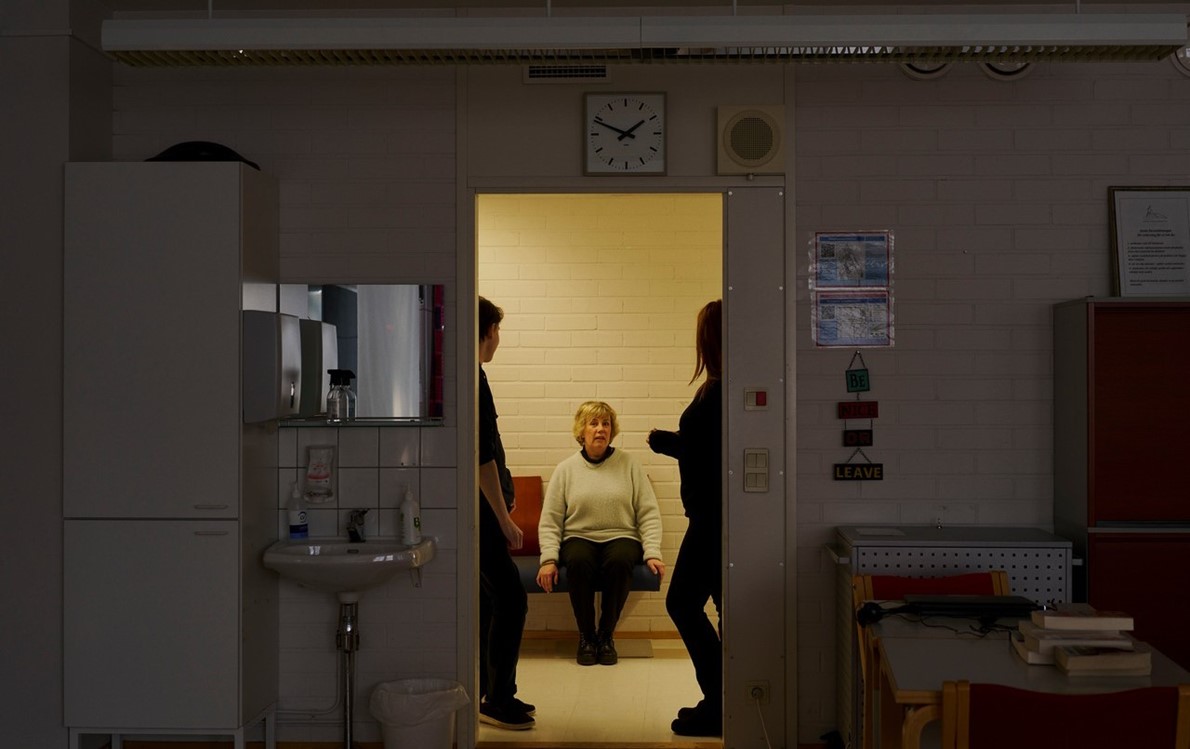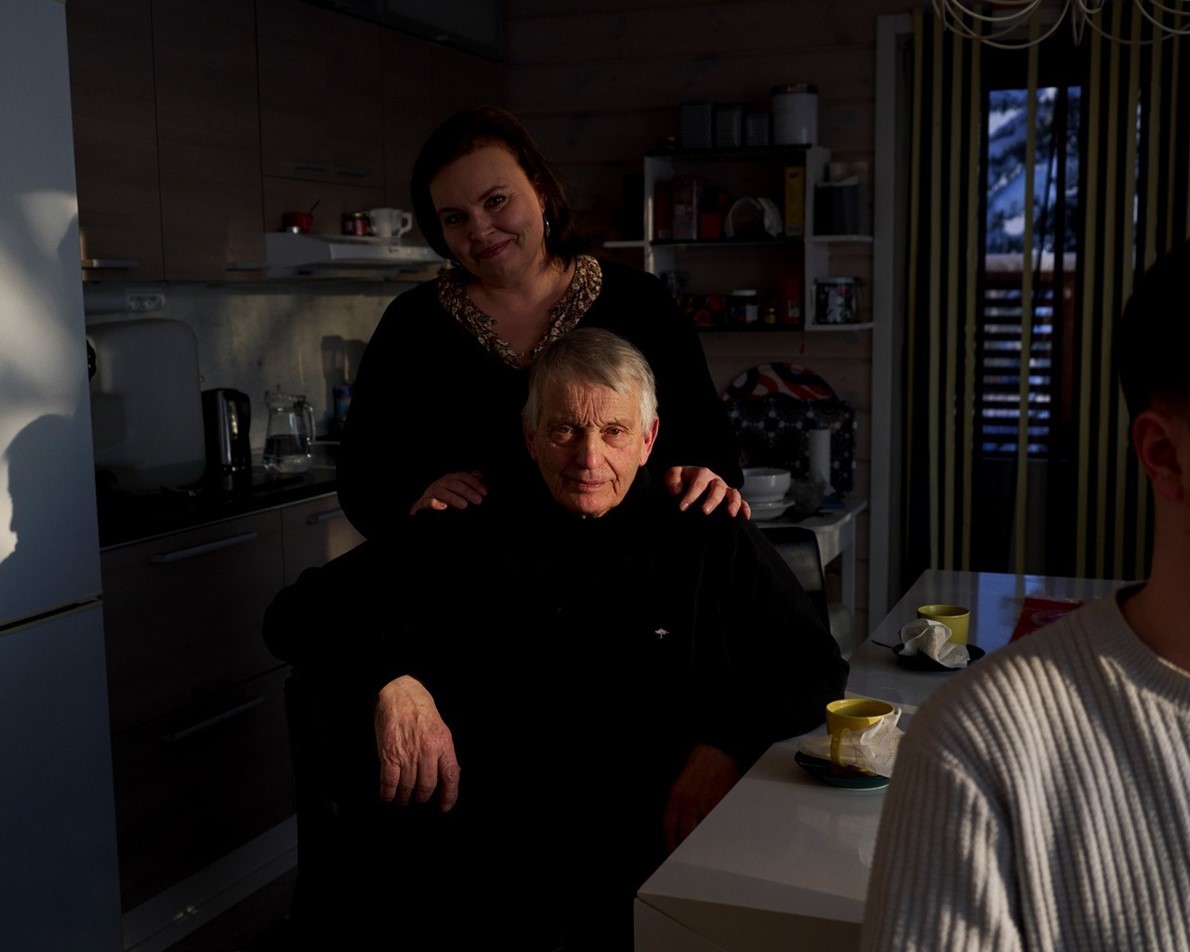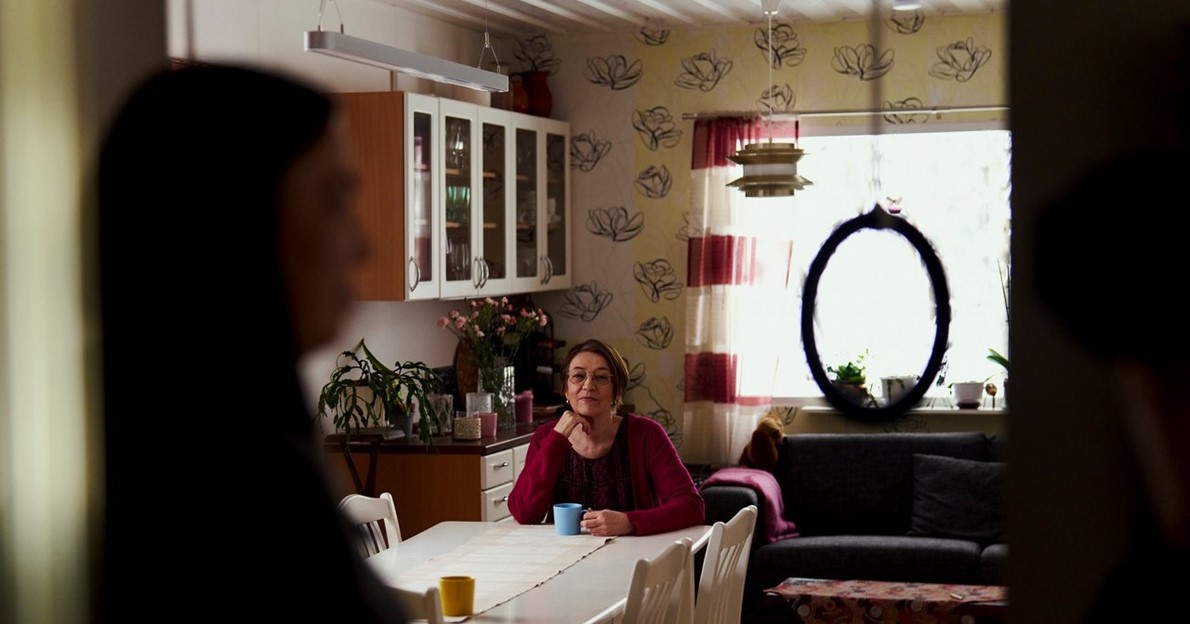On March 20, the United Nations
Sustainable Development Solutions Network released its annual World Happiness
Report, which rates well-being in countries around the world. For the sixth
year in a row, Finland was ranked at the very top.
اضافة اعلان
But Finns themselves say the ranking points
to a more complex reality.
“I wouldn’t say that I consider us very
happy,” said Nina Hansen, 58, a high school English teacher from Kokkola, a
midsize city on Finland’s west coast. “I’m a little suspicious of that word,
actually.”
Hansen was one of more than a dozen Finns
whom the New York Times spoke to — including a Zimbabwean immigrant, a folk
metal violinist, a former Olympian and a retired dairy farmer — about what,
supposedly, makes Finland so happy. The subjects ranged in age from 13 to 88
and represented a variety of genders, ethnic backgrounds, and professions. They
came from Kokkola as well as the capital, Helsinki; Turku, a city on the
southwestern coast; and three villages in southern, eastern, and western
Finland.
 Nina Hansen, a high school English teacher, with
student at Karleby Svenska Gymnasium in Kokkola, Finland on February 22, 2023.
Nina Hansen, a high school English teacher, with
student at Karleby Svenska Gymnasium in Kokkola, Finland on February 22, 2023.
While people praised Finland’s strong
social safety net and spoke glowingly of the psychological benefits of nature
and the personal joys of sports or music, they also talked about guilt,
anxiety, and loneliness. Rather than “happy”, they were more likely to
characterize Finns as “quite gloomy”, “a little moody”, or not given to
unnecessary smiling.
It turns out even the happiest people in
the world are not that happy. But they are something more like content.
It turns out even the happiest people in the world are not that happy. But they are something more like content.
Finns derive satisfaction from leading
sustainable lives and perceive financial success as being able to identify and meet
basic needs, said Arto O. Salonen, a professor at the University of Eastern
Finland who has researched well-being in Finnish society. “In other words,” he
wrote in an email, “when you know what is enough, you are happy.”
The art couple grateful for a safety net“‘Happiness’ — sometimes it’s a light word
and used like it’s only a smile on a face,” said Teemu Kiiski, the CEO of Finnish
Design Shop. “But I think that this Nordic happiness is something more
foundational.”
The high quality of life in Finland is
deeply rooted in the nation’s welfare system, said Kiiski, 47, who lives in
Turku. “It makes people feel safe and secure to not be left out of society.”
 Tuomo Puutio, a retired farmer, and his daughter,
Marjukka, an orchestra manager, in Lohtaja, Finland on February 23, 2023.
Tuomo Puutio, a retired farmer, and his daughter,
Marjukka, an orchestra manager, in Lohtaja, Finland on February 23, 2023.
Public funding for education and the arts,
including individual artist grants, gives people like his wife, Hertta Kiiski,
49, a mixed-media artist, the freedom to pursue their creative passions. “It
also affects the kind of work that we make, because we don’t have to think of
the commercial value of art,” Hertta Kiiski said. “So what a lot of the artists
here make is very experimental.”
The teenagers raised to be contentThe conventional wisdom is that it is
easier to be happy in a country like Finland where the government ensures a
secure foundation on which to build a fulfilling life and a promising future.
But that expectation can also create pressure to live up to the national
reputation.
“We are very privileged and we know our
privilege,” said Clara Paasimaki, 19, one of Hansen’s students in Kokkola, “so
we are also scared to say that we are discontent with anything, because we know
that we have it so much better than other people,” especially in non-Nordic
countries.
“We are very privileged and we know our privilege, so we are also scared to say that we are discontent with anything, because we know that we have it so much better than other people.”
The Finnish way of life is summed up in
“sisu”, a trait said to be part of the national character. The word roughly
translates to “grim determination in the face of hardships”, such as the
country’s long winters: Even in adversity, a Finn is expected to persevere,
without complaining.
“Back in the day when it wasn’t that easy
to survive the winter, people had to struggle, and then it’s kind of been
passed along the generations,” said Paasimaki’s classmate Matias From, 18. “Our
parents were this way. Our grandparents were this way. Tough and not worrying
about everything. Just living life.”
The entrepreneur who misses the joy of
her homelandSince emigrating from Zimbabwe in 1992,
Julia Wilson-Hangasmaa, 59, has come to appreciate the freedom Finland affords
people to pursue their dreams without worrying about meeting basic needs. A
retired teacher, she now runs her own recruitment and consulting agency in
Vaaksy, a village northeast of Helsinki.
But she has also watched the rise of
anti-immigration sentiment, exacerbated by the 2015 migrant crisis, and worries
about the sustainability of the high quality of life in Finland. “If we have
attitudes that are ‘Finland is for Finns’, who will take care of us when we are
elderly?” she said, referring to a common right-wing slogan. “Who will drive
the truck that delivers the food to the supermarket so that you can go and
shop?”
When she returns to her home country, she
is struck by the “good energy” that comes not from the satisfaction of sisu but
from exuberant joy.
 Helina Marjamaa, at right, a former track athlete who
represented Finland at the 1980 and 1984 Olympic Games, at her home in Kokkola
with her daughter, Mimmi, in Kokkola, Finland on February 20, 2023.
Helina Marjamaa, at right, a former track athlete who
represented Finland at the 1980 and 1984 Olympic Games, at her home in Kokkola
with her daughter, Mimmi, in Kokkola, Finland on February 20, 2023.
“What I miss the most, I realize when I
enter Zimbabwe, are the smiles,” she said, among “those people who don’t have
much, compared to Western standards, but who are rich in spirit”.
The farmer and his cellist daughterTuomo Puutio, 74, started working at 15 and
supported his family for decades as a cattle and dairy farmer. Thanks to
Finland’s school system, which includes music education for all children, his
daughter Marjukka Puutio, 47, was able to pursue her dream of a music career
beyond their village.
“You get the chance to be a cello player,
even if you are a farmer’s daughter,” she said.
“Our parents were this way. Our grandparents were this way. Tough and not worrying about everything. Just living life.”
Music is a source of well-being for many Finns,
many of whom sing in choirs, learn instruments, or attend regular concerts,
especially during the country’s long, dark winters. But Marjukka Puutio worries
that these opportunities may not be available to future generations: Finland
will hold parliamentary elections today, and the far-right Finns Party, which
won the second-highest number of seats in 2019, has promised to cut funding for
the arts if it secures a majority coalition this year.
“Music, which I am passionate about, it
creates a mindset where you can face your inner feelings and fears,” said
Puutio, who now manages an orchestra. “It touches parts of our soul we could
otherwise not reach. And that will have a long-term effect on people’s lives,
if these experiences are taken away from us.”
The former olympianMany of the subjects cited the abundance of
nature as crucial to Finnish happiness: Nearly 75 percent of Finland is covered
by forest, and all of it is open to everyone, thanks to a law known as
“jokamiehen oikeudet”, or “everyman’s right”, that entitles people to roam
freely throughout any natural areas, on public or privately owned land.
“I enjoy the peace and movement in nature,”
said Helina Marjamaa, 66, a former track athlete who represented the country at
the 1980 and 1984 Olympic Games. “That’s where I get strength. Birds are
singing, snow is melting and nature is coming to life. It’s just incredibly
beautiful.”
The matriarch and her granddaughterBorn 17 years after Finland won
independence from Russia, Eeva Valtonen has watched her homeland transform from
the devastation of World War II through years of rebuilding to a nation held up
as an exemplar to the world.
“I enjoy the peace and movement in nature. That’s where I get strength. Birds are singing, snow is melting and nature is coming to life. It’s just incredibly beautiful.”
“My mother used to say, ‘Remember, the
blessing in life is in work, and every work you do, do it well,’” said Valtonen,
88. “I think Finnish people have been very much the same way. Everybody did
everything together and helped each other.”
Her granddaughter Ruut Eerikainen, 29, was
surprised to see Finland now ranked as the happiest place on Earth. “To be
honest, Finns don’t seem that happy,” she said. “It’s really dark outside, and
we can be quite gloomy.”
Maybe it is not that Finns are so much
happier than everyone else. Maybe it is that their expectations for contentment
are more reasonable, and if they are not met, in the spirit of sisu, they
persevere.
“We don’t whine,” Eerikainen said. “We just
do.”
Read more Health
Jordan News








